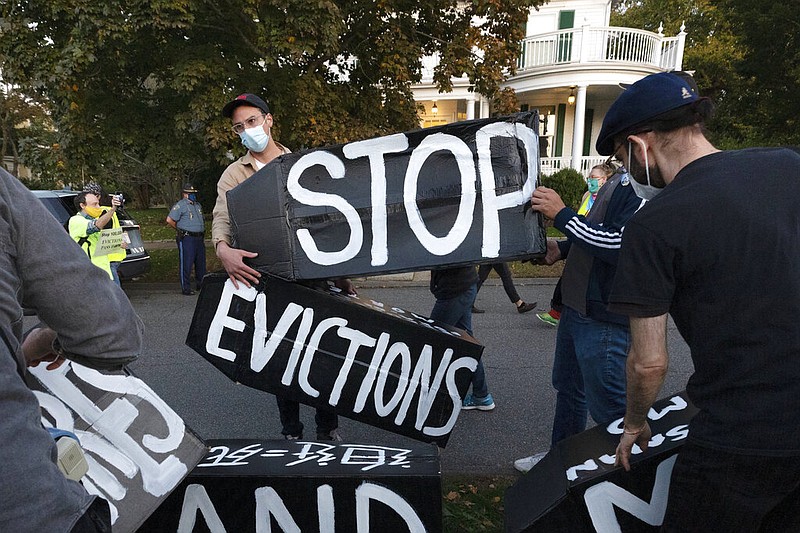The passage of the city of Chattanooga's budget Tuesday evening is helping scale up a program to prevent evictions in the community and provide legal aid to residents.
The city allocated $500,000 from federal funds from the American Rescue Plan to expand the eviction prevention initiative that launched earlier this year as a pilot program.
Through grants from the Community Foundation of Greater Chattanooga, area residents facing eviction can be paired with an attorney from Legal Aid of East Tennessee who can help prevent the eviction or negotiate terms if residents must leave their homes.
The economic effects of the COVID-19 pandemic have put many residents on the brink of losing their homes, said Joda Thongnopnua, chief policy officer.
Unlike landlords, many of those facing eviction do not have legal representation when they appear before a judge. The initiative provides an opportunity for greater justice in Hamilton County and is a cost-effective way of dealing with issues of housing instability, Thongnopnua said.
"When we see folks represented by an attorney whenever they are facing an eviction, and [the initiative] provides that, we are simply leveling the playing field, which is better for everybody," Thongnopnua said.
Need help?
For those looking for more information about the eviction prevention initiative or to possibly receive help through the program, call 423-710-9432.
A 2018 study from the Colorado Center on Law and Policy that reviewed 93,000 eviction cases in Denver between 2001 and 2017 found that tenants had legal counsel in only 1 to 3% of cases reviewed, but in instances where counsel could advocate on behalf of tenants most cases resulted in the tenants being able to stay in their homes.
During the pilot phase, the initiative helped 177 local households either avoid an eviction or improve the outcome of their legal proceedings, said Alexa LeBoeuf, project director. Those households included 182 children, she said.
The American Rescue Plan provided around $39 million to the city. Around $7 million is being used to address immediate impacts of the COVID-19 pandemic, including housing instability. The remaining, about $32 million, is expected to be used for long-term community recovery efforts.
Woodson Carpenter, communications and engagement coordinator for the Community Foundation of Greater Chattanooga, said the initiative provides a chance for continual, shared learning on the levels of local government and philanthropy.
Maeghan Jones, president of the community foundation, said Legal Aid of East Tennessee is in the process of hiring a second attorney to help with the program, an intake coordinator will be hired and the initiative is working with Habitat for Humanity to fund a social worker.
"This new infusion of resources really lets us begin to scale the program and, as we scale the program, we'll be able to look at what the trends that we're seeing are and really understand the scope of the problem better," Jones said.
LeBoeuf said researching how the program is working and where it needs to focus will be an ongoing effort. An initiative that was created to respond to an emergency now has the opportunity to change how the local housing and court systems operate, she said.
"We've shifted from pilot and learning to implementing and analysis," LeBoeuf said.
Contact Wyatt Massey at wmassey@timesfreepress.com or 423-757-6249. Follow him on Twitter @news4mass.
